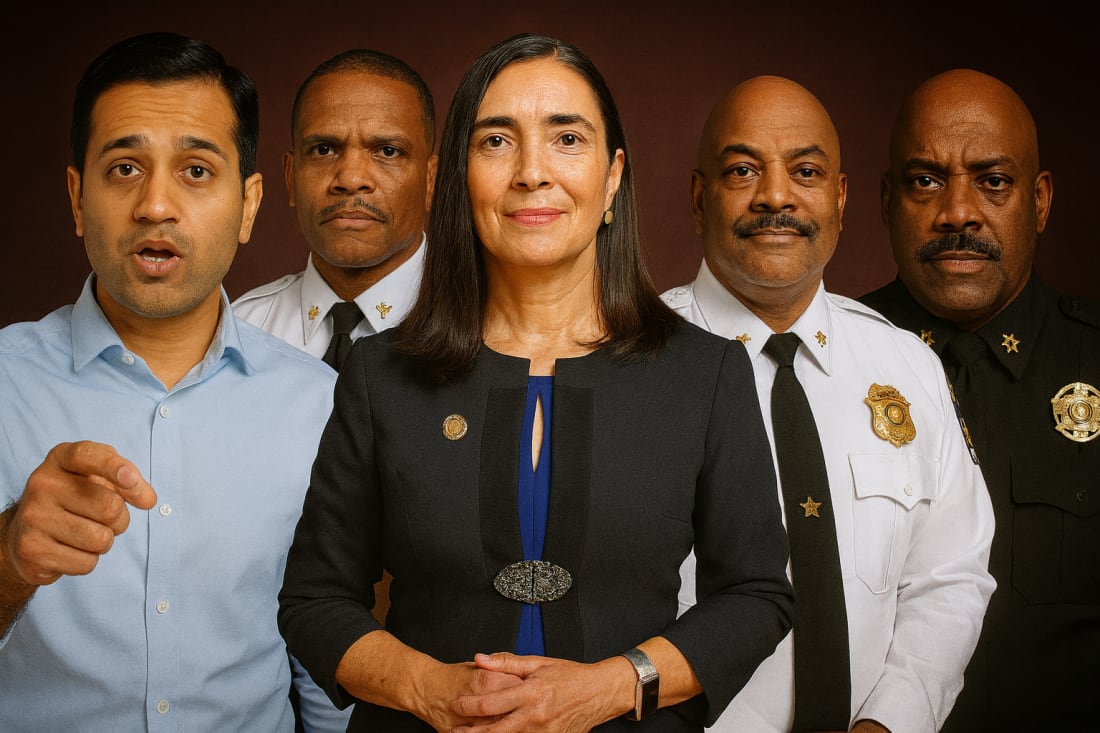|
 |
The Human Cost of Roy Cooper’s Criminal Compassion
When Mercy Is Murder: How Cooper’s Task Force replaced punishment with pity — and unleashed repeat offenders onto North Carolina’s streets.
Part II of “Roy Cooper’s Equity Experiment”
When former Governor Roy Cooper created his Task Force for Racial Equity in Criminal Justice, he promised compassion, and racial equity. But five years later, Cooper’s “compassion” has a body count.
The reforms inspired by the Task Force — no-cash bail, early releases, “decarceration” mandates — have left a trail of shattered families and unbearrable grief across North Carolina.
The theory was equity. The reality is blood.
A Child’s Life, a System’s Failure
In September 2025, four-year-old Jayce Edwards was playing in his southwest Charlotte home when gunfire ripped through the wall. He died before medics arrived.
Police later arrested four men — Angelo Hudson, Jordon Davis, Marquise Guerrier, and Anthony Abel — accused of spraying bullets into the neighborhood during a car theft spree.
All four had prior violent arrests. All had been released repeatedly under Mecklenburg County’s loosened bail rules, the very policies advanced under the Task Force’s 2020 recommendations.
“These suspects should have never been on the street,” said one veteran officer. “They didn’t just fall through the cracks. The cracks were policy.”
A GoFundMe for Jayce’s family shows a smiling preschooler in a Spider-Man T-shirt. The image has become a symbol for the victims of “compassionate” justice — people killed not by accident, but by design.
“Jayce truly was our light, he really was our light, just the sweetest kid, a loving kid, playful. He was just a joy, now a big part of that is gone,” said his aunt.
Z’yon Person: A Name They Forgot
The Task Force promised to “heal communities.” But Durham has yet to heal from the murder of nine-year-old Z’yon Person, gunned down while riding in his mother’s car.
Two Durham gang members, already known to police, ambushed the family after mistaking the vehicle for a rival’s.
Both shooters were repeat offenders who had cycled in and out of the system thanks to lenient pretrial policies.
In federal court, prosecutors described the killing as “pure evil.” The men were eventually sentenced to life in prison, but their path there was paved by years of indulgence — years when the local justice system chose therapy over incarceration.
“He was just a boy,” Z’yon’s grandmother said in tears. “They knew he was dangerous, and they still let him out.”
That’s the new moral arithmetic of equity: the safety of the innocent traded for the freedom of the repeat offender.
Mary Collins and the Cost of Bail Reform
Then there’s Mary Collins, a 20-year-old Charlotte woman with developmental disabilities who was lured to an apartment by people she considered friends. They beat her, murdered her, and hid her dismembered body in a mattress.
At least one of her killers had been released on bond after prior violent charges. The lenient bail policies came from Mecklenburg County’s “reform framework,” directly inspired by the Task Force for Racial Equity’s call to end money bail.
Mary’s grandmother, Mia Alderman, has since become one of North Carolina’s most outspoken advocates for bail reform — not the kind Cooper meant, but the kind that locks up repeat violent offenders before they can strike again.
“My granddaughter’s death was preventable,” she said in a 2025 WBTV interview. “We’re not talking about low-level crimes anymore. We’re talking about people who kill.”
When Mercy Becomes Malpractice
Each of these cases reflects a principle the Task Force enshrined: that incarceration itself is the injustice. Cooper’s allies — from Anita Earls to Clarence Birkhead — have spent years preaching that bail criminalizes poverty and prisons perpetuate racism. But in practice, their reforms have turned jails into revolving doors.
A former Charlotte prosecutor put it bluntly:
“Under this system, we release violent men to prove our compassion — and we send innocent families to funerals to prove our consistency.”
The math is moral, not legal: offenders win, communities lose, and every tragedy becomes another “lesson learned.”
The Political Alchemy of Guilt
Governor Cooper’s policies stemmed from good optics during the BLM uprising.
The Task Force’s 2020 report promised to “end the criminalization of communities of color.”
But that mission became an excuse to lower standards across the board.
Now, even Cooper’s allies are struggling to defend the fallout.
Cities like Charlotte and Durham lead the state in violent crime. Asheville, once a tourist haven, is a cautionary tale. Police departments are demoralized, short-staffed, and afraid to act.
Meanwhile, Cooper has moved on — launching his campaign for the U.S. Senate, pitching himself as a pragmatic moderate.
His record tells another story: a governor who traded justice for ideology, and whose “racial equity” experiment has cost lives that no apology can restore.
“This isn’t reform,” a retired sheriff told me. “It’s regression with better branding.”
The Human Cost
Jayce. Z’yon. Mary.
Different cities, same failed policy, same preventable tragedies.
Despite what Democrats say, these killers weren’t failed by society. No, society was failed by leaders who refused to hold killers accountable.
Roy Cooper’s “compassion” promised to make the system gentler. It did, for the offenders. For everyone else, it made North Carolina more dangerous than ever.
Part III of “Roy Cooper’s Equity Experiment” will be published next Tuesday
You're currently a free subscriber to NC Political Tea. For the full experience, upgrade your subscription.




